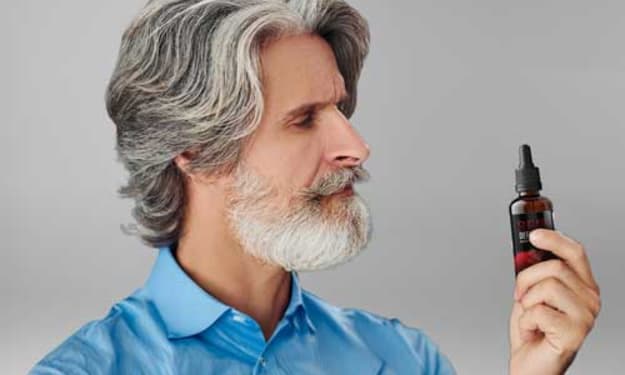Before we start, I should acknowledge that I am writing this article as a white, cisgendered person with parents who are comfortably well-off and able to support me if I need it.
I'm also a Queer woman with more than one Disability, who didn't graduate from high school, and has a very checkered education and employment history.
There is a very important word to remember here: Intersectionality.
Intersectionality defines the areas where different areas of privilege and disadvantage may overlap. A person may benefit from White Privilege, while also being discriminated against for Gender, (dis)Ability, Wealth/Background, or Sexuality. It may not be legal or intentional, but it still happens.
It is also important to remember that the entire world is not a monolith (or the USA…) What is common or institutionalised in one country may be a minority or fetishised in another. What is well-understood to some may be a foreign concept to others.
Benefits or Risks that apply to someone in a Country with an Official Religion may be virtually non-existent in a Secular country, or only apply in certain parts of that country (ie USA South/Bible Belt). The fact that those benefits or risks may only apply to a lesser extent doesn't mean that they don't exist.
Seeking treatment in countries with Nationalised Healthcare is a very different kettle of fish to the Hellscape of the USA Health System.
Most Privilege Checklists will focus on Race, Religion and Sexuality.
As I've already pointed out, those are not the only kinds of privilege out there, but they are the ones that recieve the majority of attention. Even within Spheres of Privilege, there are factors that influence the way a person is treated.
"Invisible" disabilities are far harder to get accommodations for than obvious disabilities. An attractive or well-dressed person is often treated better than someone plain or dressed in casual clothing. It's harder to get diagnosed as an adult than it is as a child, and doubly-so if you're an adult woman, as the majority of early medical studies of various disorders were performed on male children. (Don't get me started on conditions like ADHD and Autism presenting differently according to gender…)
No, I've never been called a racial slur, or been told I'm "attractive… for my race".
I have been called any number of ableist slurs, and outside of my parents, my partner (who is Demiromantic and cares less about looks in general) and Creeps on the Internet, no one has called me attractive, period.
I'm White. Working in a low-paid industry like Disability and Aged Care, there have been times when I have been the only person of my race in the room. There have been times where others have been promoted because the company wouldn't have to pay them as much as they would if I had been promoted (Working Visa vs Citizenship) and when English as a First Language was a disadvantage (many clients spoke English as a third or fourth language).
I learned to read a lot of words before I ever spoke them or heard them spoken, leading to a pronounced, almost UK, accent. Growing up in Australia, I absolutely was mocked about my accent and told to 'speak like a real person' by schoolyard bullies, despite English being my first and only language.
I have never been afraid of admitting my sexuality. That's largely because it took until my mid-20s to discover that my sexuality even existed outside of science jokes. Asexuality, or the idea that sexual and romantic attraction could be two different things, wasn't covered in Sex Ed or Health classes. I knew that a few of my parent's friends were in same-sex relationships, and I knew that I was never comfortable when my friends talked about "Celebrity Cheat Lists" and attractive celebrities.
Raised in a Secular nation by non-religious parents who left the Church and never looked back once their parents stopped making them go, I wasn't afraid to tell my parents that I was Asexual, or that I didn't think Gender was a factor in who I was attracted to.
However, I have had to play the 'Pronoun Game' A LOT over the years, while working for Conservative Managers, elderly clients, and/or Religious-based companies. Friends told me that they voted against marriage equality in 2017 (both of my long-term relationships were with people who were Assigned Female At Birth). I've accompanied family and clients to church and had to listen to sermons railing against me and people like me.
I bounced between Public and Private schools for my education, and spent most of that time being written off as 'Lazy', 'Unmotivated', 'Antisocial', and 'Unfocused'. Having an undiagnosed disability before Individualised Education Plans existed will do that to you.
I never graduated or went to University, though I did later attain a few Trade Certifications through six-month TAFE courses.
According to most checklists, I am either incredibly privileged (because my disadvantages were not included) or far more disadvantaged than I actually am (because of a heavy emphasis on LGBTQ+ issues, and working in a minority-heavy sector). Realistically, I fall somewhere in the middle.
Life is not a Checklist, and the sum of our lived experiences can't be boiled down into one. Privilege and Disadvantage are never as cut-and-dry as clickbait articles would have you think.

I'm not normally so blatant, but money is going to be tight for a bit, so if you're able to leave a tip, pledge support, or even share this around for extra reads, I'd appreciated it.
If you liked this story, follow me on Vocal and Medium!
About the Creator
Natasja Rose
I've been writing since I learned how, but those have been lost and will never see daylight (I hope).
I'm an Indie Author, with 30+ books published.
I live in Sydney, Australia
Enjoyed the story? Support the Creator.
Subscribe for free to receive all their stories in your feed. You could also pledge your support or give them a one-off tip, letting them know you appreciate their work.







Comments
There are no comments for this story
Be the first to respond and start the conversation.